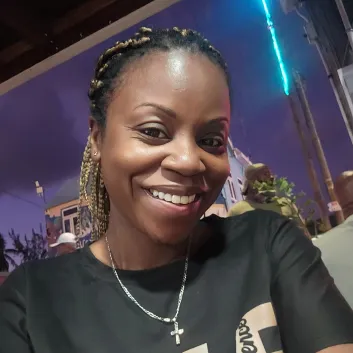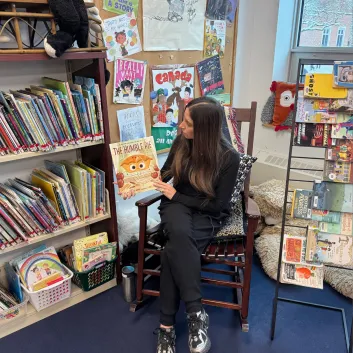- From the Community
- April 25, 2025
Still Moving Forward 35 Years Later
John's Story
“I was diagnosed with MS in 1989 - before the internet and before Hamilton hospitals even had MRI machines. I’d been married for just seven months, and my wife was four months pregnant. I knew nothing about MS.
After leaving the neurologist’s office, I stopped by the local MS Canada chapter and picked up a brochure. It had some information about the disease, but we did more research on our own. That’s when I started to feel concerned about what might lie ahead.
My first symptoms were numbness on my right side and some vision issues, but nothing others could see. I told close friends and family but was quite private about it for the most part. I started a new job and didn’t even tell my employer. For many years, my symptoms weren’t visible to others. With relapsing-remitting MS, I would have a relapse every five years or so, usually resulting in numbness in my hands and feet and vision issues.

I’ve always been physically active, and I continued to swim and run. Twelve years after my diagnosis, I was still running 10km five days a week, and two years later, I started doing some sprint triathlons. I stopped running in 2005 when my foot began to drag from fatigue, but I kept swimming three times a week. Over time, walking became more difficult and I struggled with keeping my balance. In 2007, I started using a cane, and switched to a walker three years later. By 2012, I was using a scooter for distance, and in 2014 I started using hand controls to drive.
MS affects you mentally and physically. Staying active has helped me in both areas. I’ve learned to pace myself, embrace technology, and use aids that help me keep doing the things I want to do. I’ve let many seniors I know borrow my walker when they weren’t quite ready to use one. I always tell them 'walkers don’t make you feel old, they make you feel steady!'

When I was first diagnosed, I wanted to do something meaningful and raise awareness. That’s what led me to MS Walk. My first MS Walk was in 1990 when it was still called the ‘Super Cities Walk.’ Like many others, MS Walk was my first time getting involved with the MS community. I stepped away for a while after moving, changing jobs, and raising three children, but got involved again in 2009. One of the most moving memories I have is from that year. I was walking alone and had overexerted myself. A man walking with his family ended up pulling me to the finish line in their wagon. I was so thankful, and it made me realize that sometimes you need help from others to keep doing the things you love. That moment was a game changer for me.
Now, I’m proud to serve as an MS Walk ambassador. It’s important to me to raise funds for research and also to support people living with MS and their caregivers. MS affects so many Canadians. It’s our disease, and thankfully our Canadian researchers are top-notch! I had the chance to attend part of the endMS conference in 2023, and meeting young researchers was so inspiring. There’s a lot happening in the research world, and I want to be part of finding a cure.
Each year at MS Walk, I make new connections. Some people I see annually, and we get to catch up. My favourite part of MS Walk is meeting people who are newly diagnosed. I try to emphasize that everyone’s journey is different and remind them to stay positive. I also connect with them through email or Zoom, offering support and sharing resources. MS Walk has become a meaningful part of my journey. It’s a great event that brings the community together and raises funds and awareness. I’ve seen the impact those funds have - locally in London, Ontario, where I live, and nationally. Funds raised support research and programs like the MS Knowledge Network, which helps people affected by MS across Canada.

Donor support means so much to me! I reach out every year to a long list of people - former colleagues, school friends, people I meet at the pool, local vendors at the farmer’s market. Some of them are new supporters, some I only hear from during MS Walk season, but they always come through. I’m never afraid to ask, and I always make sure to send a personal thank you to each person who donates. After the walk, I send a follow-up email to let them know how much I raised and to share a story or reflection. For many years, I’ve even made short videos of myself swimming, skydiving, or doing Tai Chi to share with supporters. I remember a colleague of mine telling me her 22-year-old niece was diagnosed with MS, and they all watched the video of me skiing - 23 years post diagnosis. She said it made a huge difference.
People support me and my MS Walk efforts because I work hard to build and maintain those connections. That sense of community is powerful, and while everyone’s path is unique, we’re walking it together.”
Join John in his fight against MS by registering for MS Walk here.
- Log in to post comments

